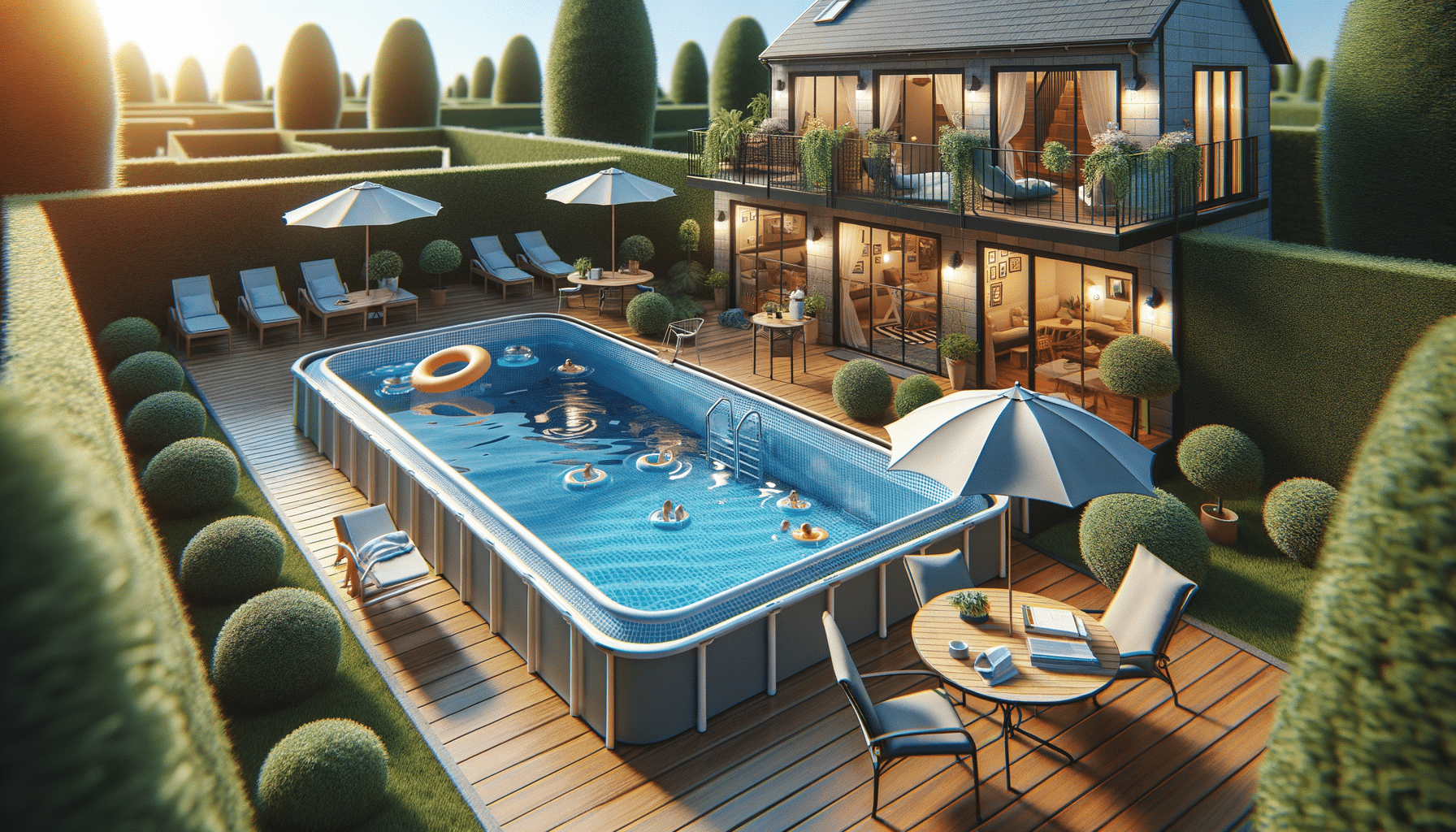
Innovative Mini Pools for Limited Outdoor Spaces
Why Consider a Small Pool for Your Backyard?
When you think of a swimming pool, expansive spaces and luxury often come to mind. However, not everyone has the luxury of space, particularly in urban settings where backyards can be limited. This is where small pools come into play, offering an excellent solution for homeowners who wish to enjoy the benefits of a pool without requiring extensive space.
Small pools, often referred to as plunge pools or mini pools, are designed to fit into compact spaces while still providing the relaxation and enjoyment of their larger counterparts. These pools are not only space-efficient but also cost-effective, requiring less water, fewer chemicals, and reduced maintenance.
Furthermore, small pools can enhance the aesthetic appeal of your backyard, creating a focal point that adds value to your property. With the right design, a small pool can transform a modest outdoor area into a personal oasis. Whether you want a place to cool off during hot summer days or a serene spot to unwind after a long day, a small pool can cater to your needs.
In summary, small pools are a practical and stylish choice for those with limited outdoor space. They offer the benefits of larger pools while being easier to maintain and integrate into various backyard designs.
Types of Small Pools Suitable for Limited Spaces
There are several types of small pools available, each with unique features that cater to different preferences and needs. Understanding these options can help you make an informed decision for your backyard.
Plunge Pools: These are small, deep pools designed primarily for lounging and cooling off rather than swimming. Plunge pools are ideal for relaxation and can be complemented with features like jets for a spa-like experience.
Lap Pools: If you are a fitness enthusiast, a lap pool might be the right choice. These pools are long and narrow, allowing for swimming laps even in a compact space. They are perfect for exercise without needing a large area.
Spool (Spa Pool): A combination of a spa and pool, spools are versatile and can be heated for year-round use. They offer the benefits of both a pool and a hot tub, making them perfect for relaxation and therapeutic purposes.
Above-Ground Pools: These pools are easier to install and can be a more affordable option. They come in various shapes and sizes, making them adaptable to different backyard layouts.
Each type of small pool offers unique advantages, and the choice largely depends on your personal preferences, budget, and the specific constraints of your backyard.
Design Considerations for Small Pools
Designing a small pool requires careful planning to ensure it complements your backyard and meets your needs. Here are some key considerations to keep in mind:
Shape and Size: The shape and size of your pool should be determined by the available space and intended use. Rectangular pools are efficient for lap swimming, while circular or kidney-shaped pools might suit relaxation and aesthetic purposes.
Materials: The choice of materials can affect the pool’s appearance, durability, and maintenance. Options include concrete, fiberglass, and vinyl, each offering different benefits and price points.
Landscaping: Incorporating landscaping elements like plants, decking, and lighting can enhance the visual appeal of your pool area. Consider using vertical gardens or potted plants to save space while adding greenery.
Safety Features: Safety is paramount, especially if you have children or pets. Installing pool covers, fences, and alarms can help prevent accidents and ensure peace of mind.
Thoughtful design can maximize the functionality and beauty of a small pool, making it a valuable addition to your backyard.
Cost and Installation of Small Pools
The cost of installing a small pool can vary widely based on factors such as size, materials, and additional features. Generally, small pools are more affordable than larger ones, but it’s essential to budget for all associated costs.
Initial Costs: The initial costs include excavation, pool materials, and installation. Above-ground pools are typically less expensive to install than in-ground options, but in-ground pools offer a more permanent solution.
Ongoing Costs: Consider the ongoing costs of maintenance, including water, electricity, and chemicals. Small pools require fewer resources, making them more economical in the long run.
Additional Features: Features such as heating, lighting, and water features can enhance your pool experience but may increase costs. Decide which features are essential for your enjoyment and budget accordingly.
Working with a reputable contractor can help ensure a smooth installation process and provide guidance on budgeting and feature selection.
Maintaining Your Small Pool
Maintaining a small pool is generally more manageable than a larger one, but it still requires regular attention to ensure it remains clean and safe for use.
Regular Cleaning: Regular cleaning is crucial to prevent algae growth and keep the water clear. Use a pool vacuum or skimmer to remove debris, and clean the pool walls and floor as needed.
Water Chemistry: Maintaining the correct chemical balance is essential for safe swimming. Test the water regularly and adjust the pH, chlorine, and alkalinity levels as necessary.
Equipment Maintenance: Ensure that the pool’s filtration and heating systems are functioning correctly. Regularly check and clean filters, and schedule professional maintenance as needed.
By keeping up with regular maintenance, you can enjoy a clean and inviting pool throughout the swimming season.

